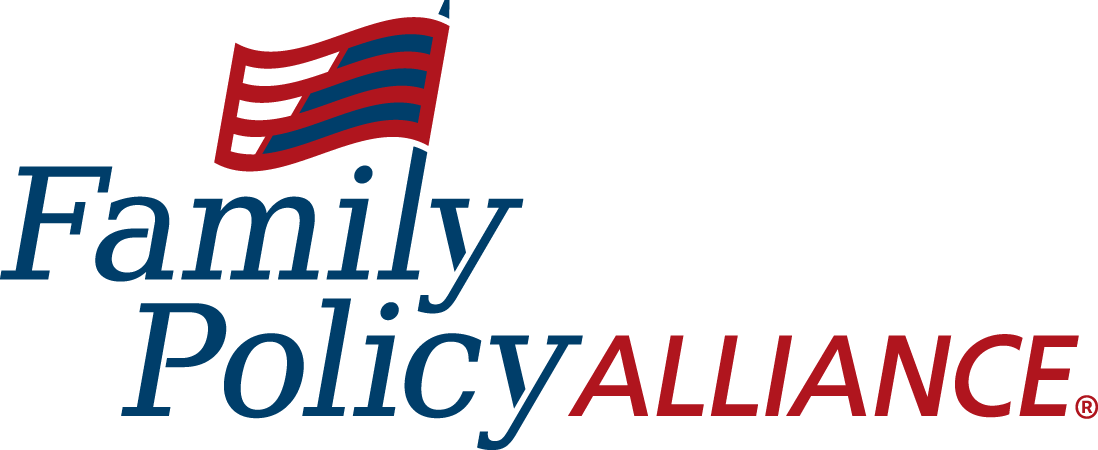by Amanda Banks, Family Policy Alliance Foundation Sr. Vice President

President Donald Trump’s recent executive order to begin dismantling the Department of Education has been attacked by many, but what does the move do for American families?
The Department of Education, created in 1979, has overseen the allocation of billions of dollars in federal school funding, with more than $60 billion annually and an additional $200 billion during the COVID-19 pandemic. Despite this massive spending, educational outcomes are near historical lows, with 70 percent of America’s 8th graders reading below proficiency and 72 percent scoring below proficient in math.
It is time to reconsider the federal role in education and how to return decision-making to those closer to the classroom.
The proposal to close the Department of Education through President Trump’s executive order is a bold step in the right direction, seeking to reduce federal government control and empower those who know best how to educate children: parents and local authorities. A key provision of this plan is the preservation of Title I funding which assists low-income students and funding for children with disabilities. The most vulnerable students will continue to receive the support they need with the program administered by another federal agency, most likely the Department of Health and Human Services.
The main goal of the President’s initiative is to shift power back to the states and local communities, where education should be decided based on the needs and values of the people directly affected. The plan specifies that the Secretary of Education shall take all necessary steps to facilitate the department’s closure while ensuring the continuation of essential services. The change is not about abandoning education but rather about putting control where it belongs—into the hands of parents, local school boards, and state lawmakers.
Closing the Department of Education makes school board members even more critical. These local leaders will rightly gain more authority and influence in curriculum decisions, funding allocations, and educational outcomes. School boards can focus on what matters most in this new environment: fostering an environment where students can best learn and thrive rather than adhering to a one-size-fits-all federal standard.
This is why we invest in the School Board Academy, an online training program that equips school board members to honor God, protect children, and preserve parents’ rights. School board members are trained by top policy and legal experts and receive a host of model policies to advance conservative values and academic excellence in their districts. At Family Policy Alliance Foundation, we value the role of school board members and invest in their training so that they can most effectively impact academic success and defend family values.
A significant aspect of closing the Department of Education is the return of leadership for education to parents, where it belongs. As Christians, we believe parents have a God-given responsibility to educate their children. In Ephesians 6:4, the Bible instructs fathers to bring up their children in the “training and instruction of the Lord.”
This verse is a clear mandate that places the responsibility for education squarely on parents’ shoulders, not the government. The federal government’s long-standing control over education has too often led to policies that undermine the authority of parents to determine what is best for their children. This initiative supports the Christian value of parental responsibility by decentralizing education and returning power to parents, local school boards, and states.
One of the most compelling aspects of closing the Department of Education is its potential to end the promotion of ideologies that conflict with traditional family values. The Trump Administration’s focus on ending “diversity, equity, and inclusion” (DEI) has led to removing federal funding from programs that prioritize ideologies of gender fluidity, critical race theory, and other divisive issues. The executive order states that any federal funds provided to education programs must comply with federal law and not support initiatives promoting “illegal discrimination” under the guise of diversity and inclusion. By ending DEI spending at the federal level, this initiative ensures that education focuses on values that strengthen families rather than erode them.
Finally, empowering local and state leaders is at the heart of this executive order. At Family Policy Alliance Foundation, we are committed to training state lawmakers and school board members, providing them with the tools and resources they need to be successful in this new paradigm. As these leaders take on greater responsibility for their communities’ education, they can honor God through their service, protect children from harmful ideologies, and ensure that parents have the final say in how they educate their children.
The proposal to close the Department of Education is vital to reducing federal government control over our children’s education and returning that power to parents, local school boards, and states. This is not just about improving education outcomes and realizing government efficiencies; it is also about honoring the foundational rights of parents and building an education system that protects children and preserves the sanctity of the family.
